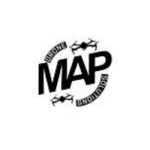Land surveying has evolved significantly with the integration of drone technology, providing surveyors with greater accuracy, efficiency, and cost-effectiveness. In Georgia, where diverse terrains range from mountains to coastal plains, using advanced aerial mapping solutions has become a necessity. This article explores the best drone for land surveying, highlighting key features and considerations to help professionals make informed decisions.
The Role of Drones in Land Surveying
Drones have revolutionized land surveying by offering high-resolution imaging, precise GPS mapping, and efficient data collection over vast areas. Traditional surveying methods can be time-consuming and labor-intensive, whereas drones simplify the process by capturing detailed aerial images and creating accurate 3D maps. In Georgia, this is particularly beneficial for construction projects, real estate development, agriculture, and environmental monitoring.
Key Features to Look for in a Land Surveying Drone
When selecting the best drone for land surveying in Georgia, professionals should consider the following essential features:
1. High-Resolution Camera and Sensors
A drone equipped with a high-resolution camera and advanced sensors can capture precise aerial images, which are crucial for creating accurate topographic maps. Sensors such as LiDAR (Light Detection and Ranging) enhance depth perception and terrain modeling, making it easier to survey uneven landscapes.
2. Long Flight Time and Extended Range
Surveying large properties or remote locations requires a drone with extended battery life and long-range capabilities. A longer flight time ensures that surveyors can cover vast areas in a single flight, reducing the need for multiple take-offs and landings.
3. GPS and RTK (Real-Time Kinematic) Technology
For precise geospatial data collection, a drone should include advanced GPS and RTK technology. These systems improve positional accuracy, allowing surveyors to create detailed and reliable maps. RTK-enabled drones can achieve centimeter-level accuracy, making them ideal for property boundary assessments and construction site planning.
4. Autonomous Flight Capabilities
Automation features such as waypoint navigation, pre-programmed flight paths, and obstacle avoidance help surveyors efficiently collect data with minimal manual intervention. This feature is particularly useful for surveying large or complex landscapes in Georgia.
5. Weather Resistance and Durability
Georgia’s climate varies from humid summers to unpredictable storms. Choosing a drone with robust construction and weather-resistant capabilities ensures reliable operation in different environmental conditions.
Applications of Drones in Land Surveying
The use of the best drone for land surveying in Georgia extends across multiple industries and applications:
1. Construction and Infrastructure Development
Drones assist in site planning, progress monitoring, and volumetric measurements for construction projects. Aerial mapping helps engineers and project managers assess terrain conditions and track development over time.
2. Real Estate and Property Assessment
For real estate professionals, drones provide detailed aerial imagery for property evaluations and marketing. Survey-grade drones enhance the accuracy of land measurements, making them essential for property sales and development.
3. Agriculture and Land Management
Drones play a crucial role in precision agriculture, helping farmers assess soil health, monitor crop growth, and manage irrigation systems. Surveyors can also use drones to analyze land conditions for sustainable farming practices.
4. Environmental and Forestry Management
Drones assist environmental scientists in tracking deforestation, monitoring wildlife habitats, and assessing land conservation efforts. Aerial surveys provide insights into ecosystem changes and help in planning sustainable land use.
5. Urban Planning and Zoning
Municipalities and urban planners rely on drones for mapping and analyzing land-use patterns. This technology aids in zoning regulations, infrastructure expansion, and disaster preparedness planning.
Considerations When Choosing the Right Drone for Land Surveying
Selecting the best drone for land surveying in Georgia depends on several factors:
● Surveying Project Size: Larger projects may require drones with longer flight times and advanced mapping capabilities.
● Budget Constraints: Investing in high-quality drone technology ensures long-term accuracy and efficiency but should align with project budgets.
● Legal and Regulatory Compliance: The Federal Aviation Administration (FAA) and Georgia state regulations mandate drone operators to obtain necessary certifications and follow airspace guidelines.
● Training and Expertise: Professional surveyors should undergo training to effectively operate and interpret drone-collected data.
Conclusion
Drones have transformed land surveying by enhancing precision, efficiency, and accessibility. Choosing the best drone for land surveying requires careful consideration of features such as camera quality, GPS accuracy, flight capabilities, and automation functions. Whether for construction, real estate, agriculture, or environmental applications, investing in the right drone technology can streamline surveying tasks and improve data reliability. As drone innovations continue to advance, surveyors in Georgia can expect even greater efficiency and accuracy in their projects.






Comments